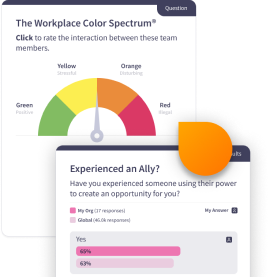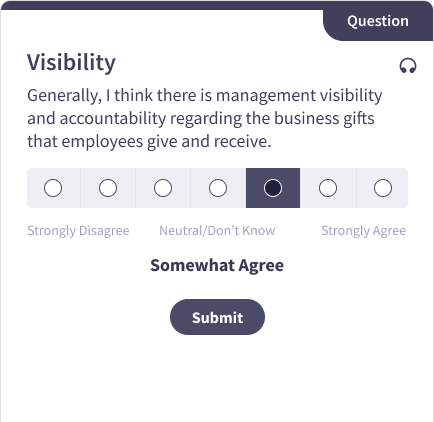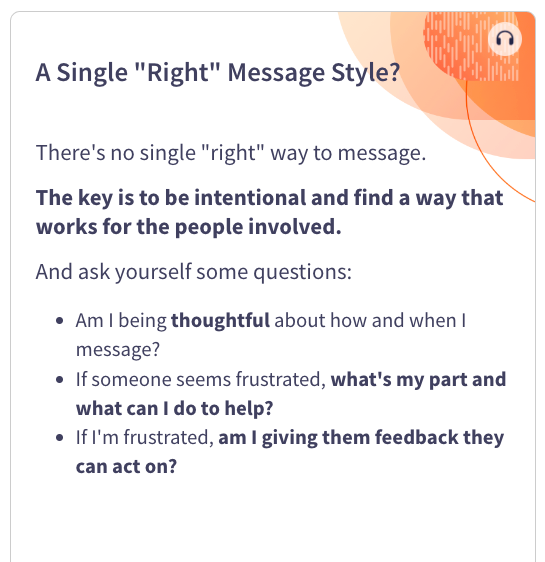
Learning to Confront Bias
Problematic behavior not only harms the target of the behavior but it also contributes to an unhealthy culture in the office as a whole. Learning how to defuse the situation when you see problematic behavior is critical for creating an inclusive workplace culture.
Microlesson DescriptionIn this microlesson, we show how a person can skillfully intervene to confront problematic behavior in their workplace. We see how being tactful and giving people a chance to change course can defuse situations before they escalate.
Key Concepts- How to recognize biased behavior
- What to say when you intervene
- Strategies to confront bias with tactical strategies
Microlesson Features
- Employee sentiment pulsing questions that provide leaders with insights into their workforce's core cultural competencies
- Emtrain's Expert Answers tool, enabling employeees to submit anonymous questions about sensitive issues.
- Rich, contemporary video scences illustrating key concepts through realistic scenarios
- A data driven, skill-based approach to eLearning that establishes a shared language for employees.

Related Resources
Related Trainings
Frequently Asked Questions
Below are answers to common questions that employees and managers have about this topic. These FAQs provide a preview of what you’ll learn in this microlesson and why it matters.
Q
Why is intervention critical for preventing workplace harm?
Intervention is critical for preventing workplace harm because it stops inappropriate behavior before it escalates, reinforces organizational values, and protects employee well-being.
Q
What risks arise if employees stay silent during misconduct?
If employees stay silent during misconduct, risks include repeated harm, legal liability for the organization, and erosion of trust in leadership.
Q
How can skillful intervention reduce workplace conflict?
Skillful intervention reduces workplace conflict by addressing issues respectfully, focusing on behavior rather than blame, and creating space for constructive dialogue.
Q
What tools can managers use to intervene respectfully?
Managers can use tools like roleplay training, conflict de-escalation frameworks, and shared language (e.g., the Workplace Color Spectrum®) to intervene respectfully.
Q
Why do employees hesitate to confront problematic behavior?
Employees hesitate to confront problematic behavior due to fear of retaliation, lack of confidence in their skills, or uncertainty about organizational support.



